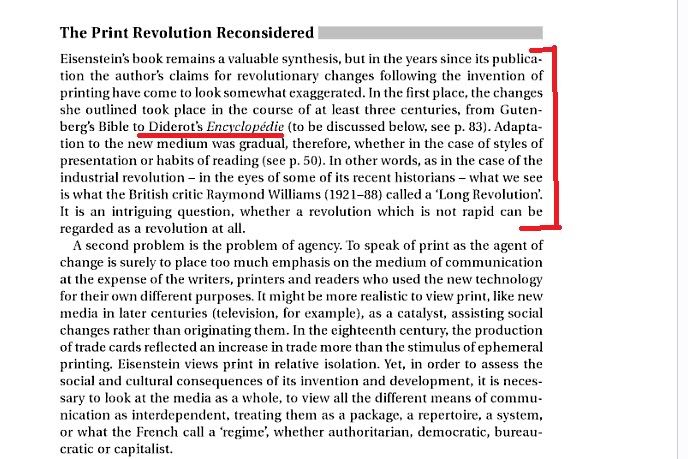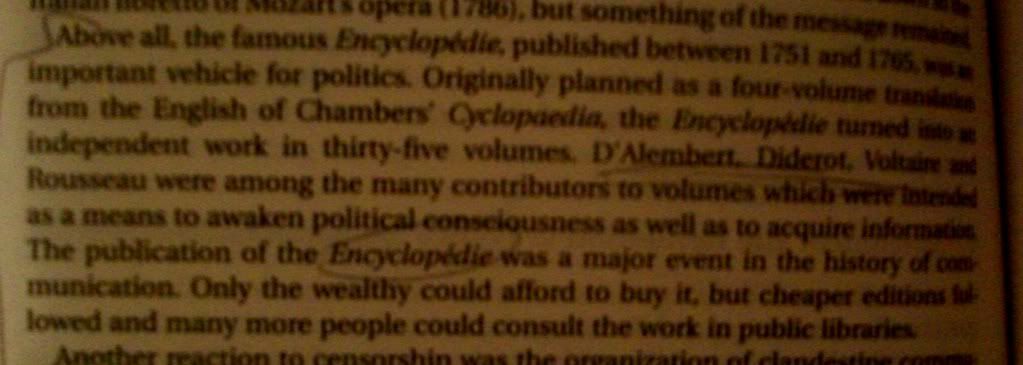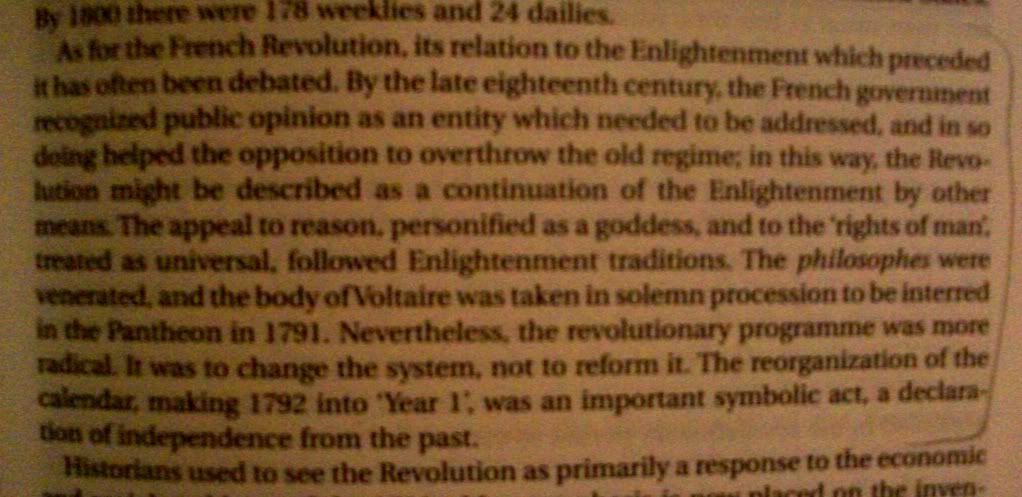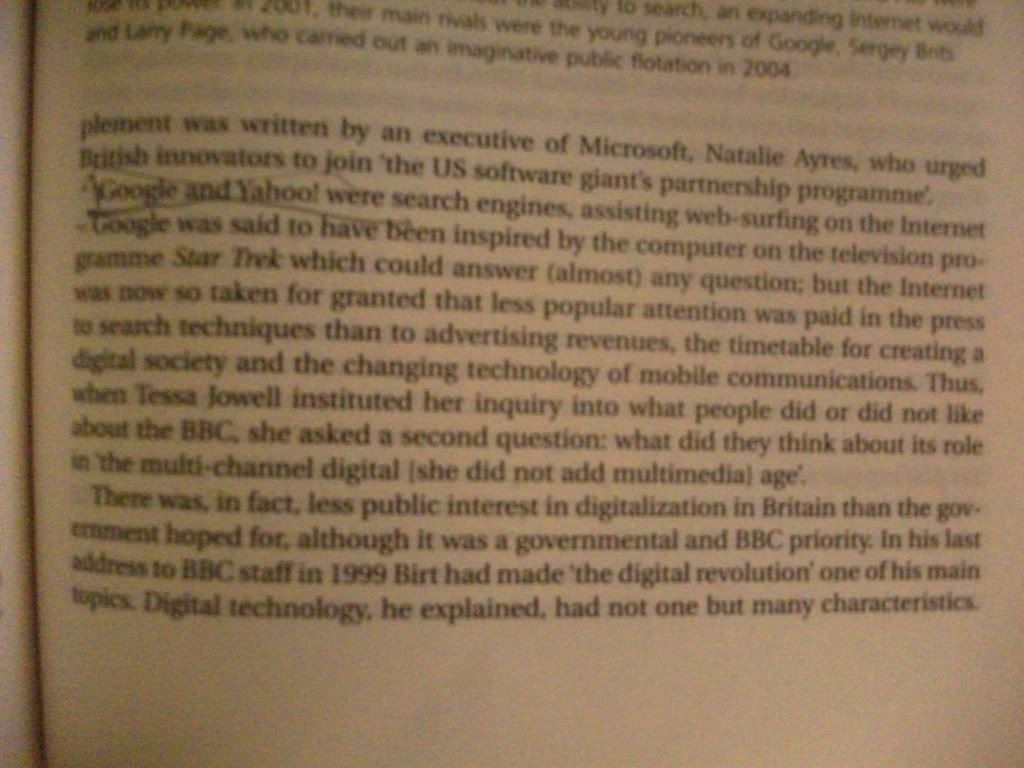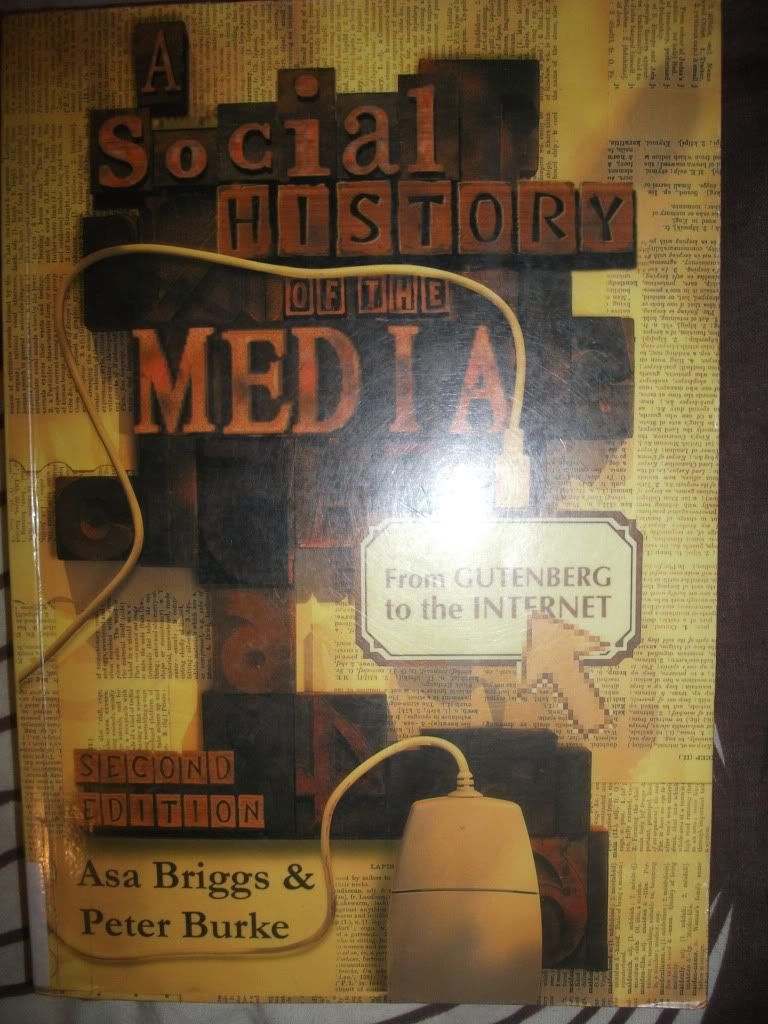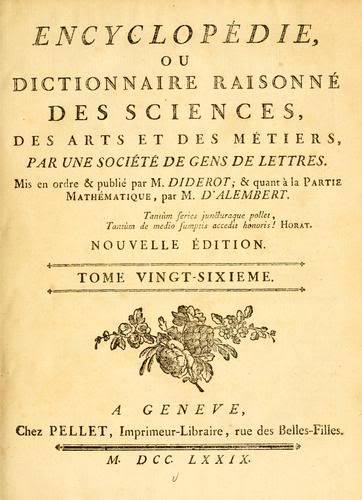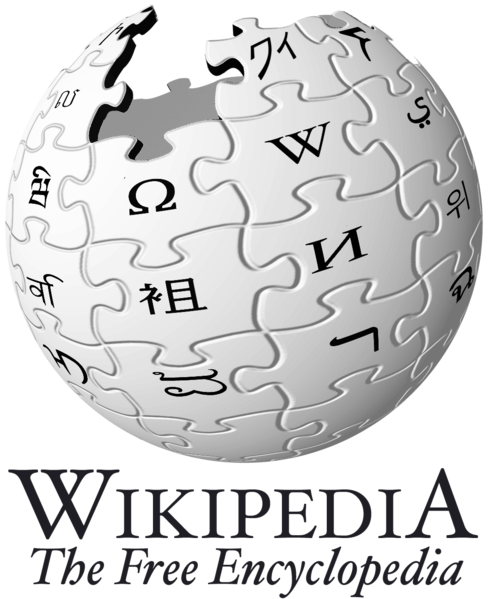From the Book:
Briggs A. and Burke P.(2005). A social History of the Media: From Gutenberg to the Internet. Cambridge: Polity Press
A paragraph referred to the Encyclopedia.
Page 80
Above all, the famous Encyclopedie, published between 1751 and 1756, was an important vehicle for politics. Originally planned as a 3 volume translation from the English of Chambers’ Cyclopaedia, the Encyclopedia turned into an independent work in thirty-five volumes. D’Alembert, Diderot, Voltaire and Rousseau were among many contributors to volumes which were intended as means to awaken political consciousness as well to acquire information. The publication of the encyclopedie was a major event in the History of Communication. Only the wealthy could afford to buy it, but cheaper editions followed and many more people could consult the work in public libraries.
A paragraph related to the Enlightment movement which somehow had a huge impact on the Enncyclopedia.
Page 81
As for the French Revolution, its relation to the Enlightment which proceeded it had often been debated. By the late 18th century , the French government recognised public opinion as an entity which needed to be addressed, and is so doing helped the opposition to overthrow the old regime; in this way the Revolution might be described as a continuation of the Enlightment by other means. The appeal to reason, personified as a goddess, and ‘to the rights of man’, treated as universal, followed Enlightment traditions. The philosophes were venerated, and the body of Voltaire was taken in solemn procession to be interred in the Pantheon in 1791. Nevertheless, the Revolutionary programme was more radical. It was to change the system, not to reform it. The re-organisation of the calendar, making 1792 into ‘year 1’,was an important symbolic act, a declaration from independence from the past.
A sort of a modern Encyclopedia was created by an American former currency speculator called Jimmy Wales. It was named Wikipedia, and invited anyone who was interested to "imagine a world where everyone has access to the sum of human knowledge". This website allows anyone who logs on to create, write and edit entries on any subject that struck them as worthy. It's beyond doubt that the not-for-profit Wikipedia has changed the way in which much of the world gets its information, and it is remarkably reliable. Offering free access to nine million articles in 253 languages, it is an encyclopedia like no other, used by almost every schoolchild in this world. Yet, many commentators have suggested that the site could be vulnerable to misuse by people with vested interests. As broadband spreads and consumers become more internet-savvy, so it will get harder and harder for Wikipedia's writers to retain any sort of authority. Entries are made, edited and altered as things happen, sometimes even before. The site can't always reflect what people know any more; it reflects what people think.
In a way, the fact that Britannica was always a little bit out of date was its main strength, because time gave its writers and readers enough space to consider their ideas and acquire a little perspective.
Note: This is the basic stuff I've picked out. Hopefully, we'll be able to write this again in our own words.
